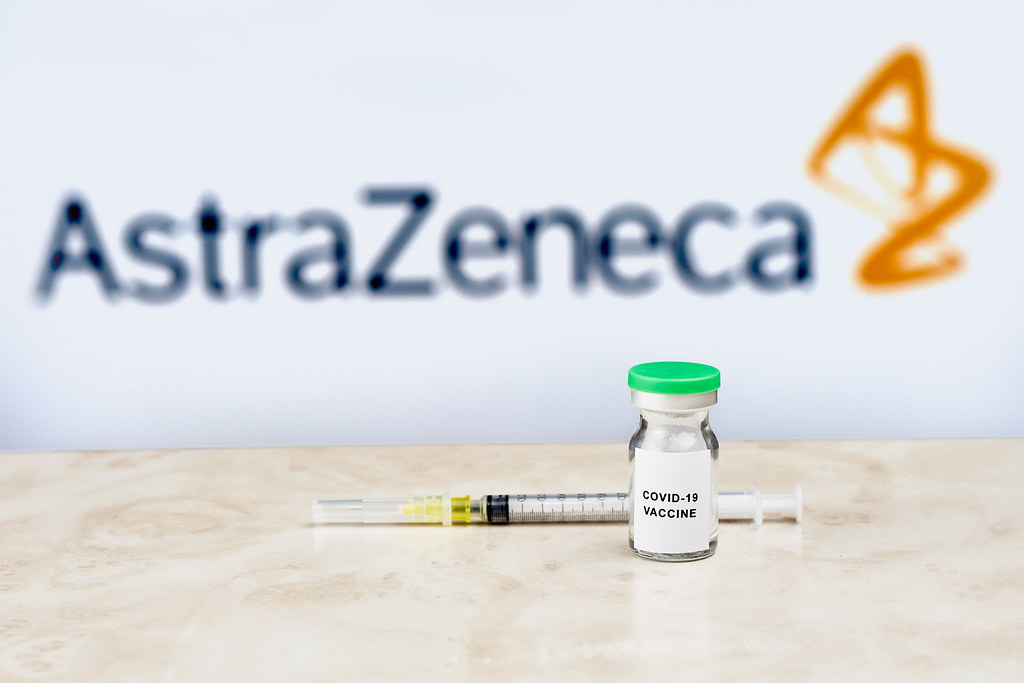UK marks first anniversary of Oxford/AstraZeneca vaccine deployment

- Country:
- United Kingdom
The UK's health service on Tuesday marked the first anniversary of the deployment of the Oxford/AstraZeneca vaccine against COVID-19, manufactured and deployed in India soon after as Covishield.
Brian Pinker, 82, became the first person in the world to receive the life-saving vaccine at Oxford University Hospital on January 4, 2021. Since then, the UK’s National Health Service (NHS) said around 50 million AstraZeneca vaccines have been administered in the UK. Around 2.5 billion doses have also been distributed at-cost to more than 170 countries, including those manufactured by the Serum Institute of India in Pune.
''Backed by government funding, the UK-made Oxford-AstraZeneca vaccine has played an absolutely crucial role in our fight against COVID-19, saving countless lives in the UK and around the world,'' said UK Health Secretary Sajid Javid, who marked the vaccine deployment anniversary with a visit to a vaccination centre in London.
''The UK’s vaccination and booster programme is world leading but with the rapid spread of the Omicron variant, it is more important than ever that people come forward for their vaccines and booster to top up your immunity this winter and protect the progress we have made,” he said.
The Department of Health and Social Care (DHSC) said it invested early in Oxford University’s vaccine development team, supporting their technology since 2016 and their COVID-19 jabs since March 2020 with more than GBP 88 million to help research, develop and manufacture the vaccine. The UK’s National Institute for Health Research’s (NIHR) helped recruit thousands of volunteers from across the UK for the phase 3 clinical trials and supported the researchers, which paved the way for approval by the independent Medicines and Healthcare products Regulatory Agency (MHRA) in December 2020.
''The Oxford-AstraZeneca vaccine is a UK success story and demonstrates what can be achieved when researchers, scientists and the government work together,” said UK Vaccines Minister Maggie Throup.
''The at-cost vaccine has given billions of people around the world a way to fight back against this virus,” she said.
More than 133 million COVID-19 vaccinations have been administered in the UK since its rollout of the Pfizer/BioNTech vaccines in December 2020, including around 34 million boosters and third doses, securing vital protection against Omicron. The current “Get Boosted Now” campaign encouraging adults to get a top-up dose has led to further increase in vaccination rates.
Professor Andrew Pollard, who helped develop the Oxford-AstraZeneca vaccine, has warned that it would not be sustainable or affordable in the long term to keep vaccinating all adults against COVID-19 with boosters and said that vulnerable groups should be identified for additional doses.
''It really is not affordable, sustainable or probably even needed to vaccinate everyone on the planet every four to six months,'' Prof. Pollard told the BBC.
''We haven't even managed to vaccinate everyone in Africa with one dose so we're certainly not going to get to a point where fourth doses for everyone is manageable… We may well need to have boosters for the vulnerable in the population but I think it's highly unlikely that we'll have programmes going forwards regularly of boosting everyone over the age of 12,'' he said.
Under current guidelines, for people who are clinically vulnerable to COVID due to underlying health conditions, a third dose of a vaccine is considered their full course – with a fourth jab being given as their booster.
(This story has not been edited by Devdiscourse staff and is auto-generated from a syndicated feed.)
- READ MORE ON:
- Omicron
- Maggie Throup
- Africa
- Serum Institute of India
- Andrew Pollard
- India
- GBP 88
- Brian Pinker
- London
- Get Boosted Now
- Oxford/AstraZeneca
- The Department of Health and Social Care
- Sajid Javid
- Pollard
- AstraZeneca
- National Institute for Health Research’s
- Covishield
- National Health Service
- NIHR
- Oxford-AstraZeneca
ALSO READ
Cyclist Crash Halts Bajaj Pune Grand Tour Stage
Syngenta Expands Pune Operations to Boost Global Digital Innovation
Pune valet attendant death case: No bail for driver; 'he drove vehicle in drunk condition', says court
Undertrial prisoner escapes from ICU at government hospital in Pune
After drubbing, Ajit Pawar meets newly-elected NCP corporators in Pune










